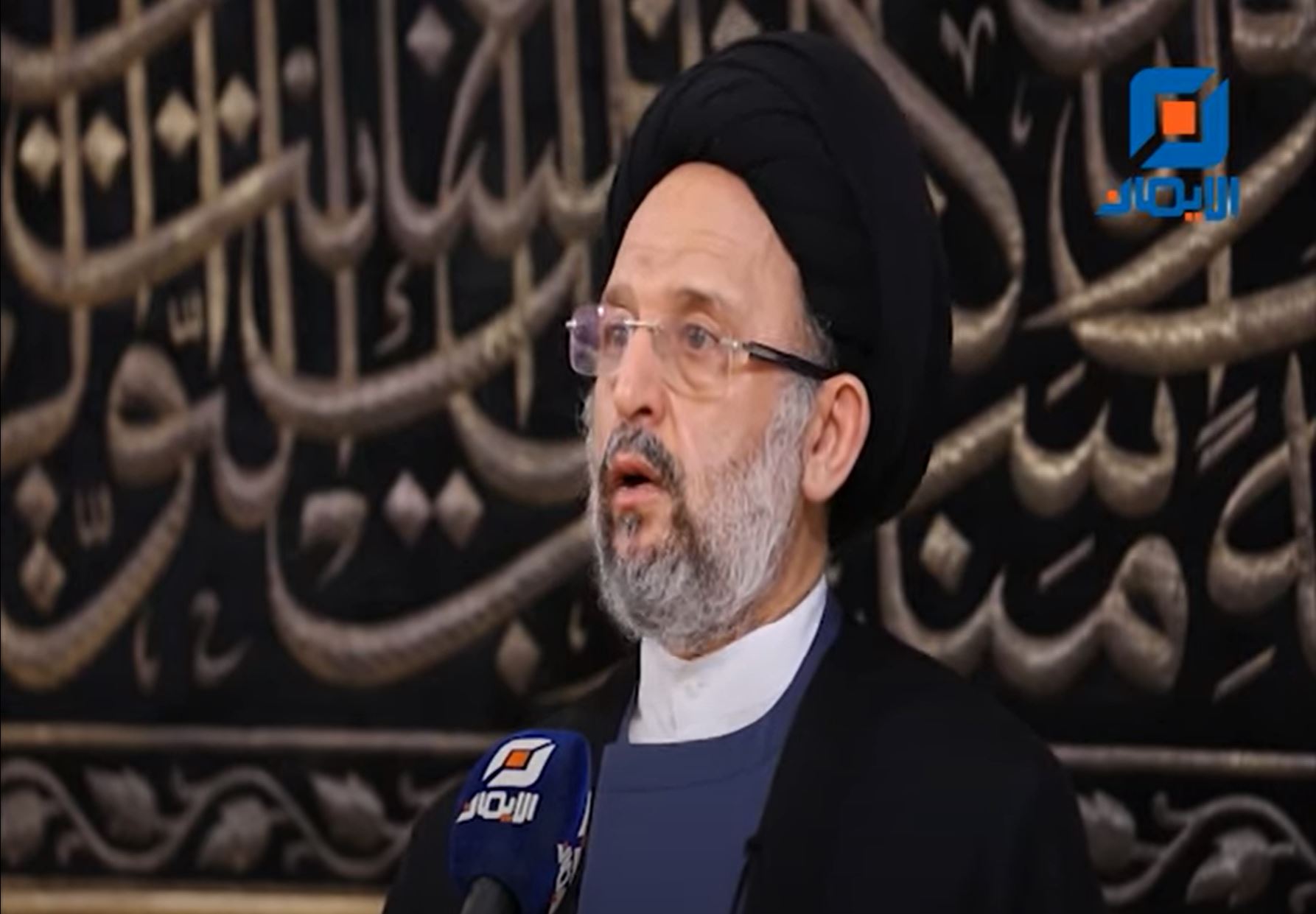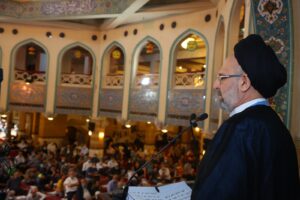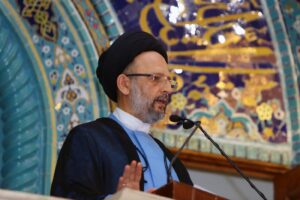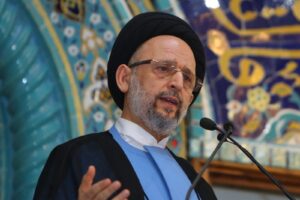The conquest of Mecca
Allah, The Most Exalted, says in His Glorious Book: indeed, We have given you, [O Muhammad], a clear conquest
That Allah may forgive for you what preceded of your sin, and what will follow and complete His favor upon you and guide you to a straight path. Allah, The Most Exalted, speaks the truth.
On the 24th of the blessed month of Ramadan, year 8 H, The Messenger (p.) and the Muslims opened Mecca eight years, after they got out of it, in a conquest that Allah, The Most Exalted, promised His Messenger(p.) with, when he immigrated to Medina. The Prophet’s biography states that when the Messenger (p.) was on his way to Medina he reached a place called Juhfa , he felt that he has already yearned to Mecca and addressed Mecca, saying : you are the place I love most. Had your people not driven me out of it, I would not have left. Allah, the Most Exalted, then revealed the following Ayat: He who imposed upon you the Qur’an will take you back to a place of return. The Divine promise was repeated in the following Ayats:
When the victory of Allah has come and the conquest,
And you see the people entering into the religion of Allah in multitudes,
Then exalt [Him] with praise of your Lord and ask forgiveness of Him. Indeed, He is ever Accepting of repentance.
The conquest of Mecca
The conquest of Mecca was a turning point in the struggle with unbelief, which was the represented by Quraish. It was a defeat that devastated the might and the reputation of the tribe and opened the door for the people in Arabia to enter Islam, for many of them were hesitant to do so out of fear of the power of Quraish. It also enabled Mecca to restore its role as a center of unification of Allah.
This conquest was the result of the efforts that Muhammad(p.) and his companions made … The Messenger (p.) that started to plan for this conquest, right from the moment he left Mecca, for he did not accept this purified land to be smeared with symbols of disbelief. That is why he did not accept to succumb to the prevailing logic that Quraish was invincible.
Relying on Allah,the Most Exalted, and with hard and well planned work, he began to establish a firm and solid base in Medina, and unified the ranks of the immigrants and the supporters (Muhajreen and Ansar) and called upon them to build their strength, based on Allah, the Most Exalted’s saying: And prepare against them whatever you are able of power and of steeds of war by which you may terrify the enemy of Allah and your enemy.
TheMessenger(p.)’s plan
Owing to his unique genius, the Messenger (p.) knew that victory could not be achieved except on the basis of realizing two factors:
The first is internal unity; those who were longtime enemies became brothers by God’s will, due to the efforts and the blessings of the Prophet.
The second is building a formidable force which held fast when the wars were imposed on them by Quraish and the Jews of Medina and was victorious in the battles of Badr, Ahzab and
khaibar …as well as the Hudaibya peace.
These victories paved the way for the conquest of Mecca and returning it to the religion of unification.
The Messenger(p.) went all the way to ensure that no blood was spilled in this conquest, due to the sanctity of the city on the one hand and because fighting was an exception on the other. He took several steps to ensure the realization of this goal:
First: ensuring total secrecy; He did not want Quraish to have any knowledge of his move, and when he knew he knew that one of his companions, Hatib bin Abi Balta’a, sent a woman with a letter to Quraish to warn them he sent after her some of his companions who were able to bring her back before reaching the city. The second measure was keeping a constant watch on the road between the two cities as a matter of precaution. The third measure was executed when the Muslims reached the outskirts of Mecca on the eve of the conquest. He asked the fighters to light fires on the hills overlooking the city as well as in their places to scare the Qurahites of the Muslims’ apparently huge army
The fourth measure: the Messenger p.) sent a message to his uncle , Al –Abbas, in Mecca telling him that the Qurahites have no other option than letting him enter the city in peace. He also asked him to get Abu Suffian to see for himself the vastness of the Muslim army and advise him not to fight them.
The last measure: neutralizing Quaraish by ensuring them their safety ,by letting them know that : “who entered his house is safe, who entered the mosque is safe and who entered the house of Abu Sufyan is safe and who did not carry weapons is safe.
These measures were successful and led to the surrender of the Quaraishites and Mecca opened its arms to receive the Messenger of Allah under the banners of victory and the cries of “Allahu Akbar”.
How did the Messenger enter Mecca
After this victory, how did the messenger enter Mecca? Did he enter as a victorious conqueror who wanted to punish his enemies? His biography says that he entered Mecca putting his head down bowing on his horse and reading the Surah of Al Fateh: indeed, We have given you, [O Muhammad], a clear conquest
That Allah may forgive for you what preceded of your sin and what will follow and complete His favor upon you and guide you to a straight path. Feeling what Allah has given him of the blessings of conquest, victory and forgiveness of sins, he was not in the least arrogant. And he kept repeating the phrases of Tasbeeh and asking Allah for forgiveness. And when a man who was trembling out of fear came to talk to him, the Messenger told him, “I am the son of a woman who used to eat cured meat.” And when he heard Saad Bin Ubadah saying, “today is the day of war. Sanctuary is no more. He ordered Ali (a.s.) to run after Saad and take the banner from him and say “today is the day of mercy”.
And when he reached the Honorable Kaabah, he started to destroy the idols and say “Truth has come, and falsehood has departed. Indeed is falsehood, [by nature], ever bound to depart.”
Then when the women and men of Quraish came to see what he was going to do with them, after all the harm and sufferings they had inflicted on him and the Muslims, he stood up, and being the mercy that was sent to all mankind , he said : go and you are free, thus giving the most wonderful example throughout history in forgiveness .Thus, the day of conquest was a day of victory and triumph and pride, but also a day of mercy and humbleness.
The lessons of the conquest
The Messenger wanted to demonstrate in practice what he was sent with and what he called for: that real leadership is not a leadership of revenge and settling accounts. It is a leadership of a message that seeks, from the position of strength, to open up the hearts of people to the religion and turn the enemies into friends through the Message of Mercy. The conquest of Mecca exemplified that Muslims ought not stand with injustice and tyranny ;they should support the oppressed and the downtrodden . Then when they achieve victory, they would treat all people with mercy and good.
His Eminence, Sayyed Ali Fadlullah issued on Ramadan 29, 1441 H. /May 22, 2020 a press release in the context of his regular Friday talk. Following are the main points he touched upon:
The Sayyed elaborated in the beginning on the virtue of piety that one ought to deepen in the month of Ramadan. He stressed the necessity on preserving this virtue in our souls, for it makes us able of curbing our selfishness, and enhance our determination to confront oppression and all other challenges.
As for the coronavirus, he held every citizen responsible for protecting himself and the others from this pandemic, and not to be lax, since he would thus be harming himself and others, and this will lead to renew the locking down of the country whose consequences on the economy is known by everyone . He called on the government to respond appropriately on those who do not abide by the isolation measures.
The Sayyed noticed that the government has not come up yet with serious and clear solutions to fight the rise in the prices of essential commodities that the citizens can no longer tolerate, as they have become victims of the greed of merchants and the rise in the price of the dollar that is consuming their salaries and their savings. He welcomed the social and humanistic initiatives, which was launched by individuals and institutions to help the Lebanese .He called for forming a united front in the face of the increasing and catastrophic poverty.
The Sayyed appreciated the efforts that the government is making on various levels, and drew her attention to the importance of opening up on the political parties and the various views. He criticized all parties that give priority to its narrow and partisan interests at the expense of the unity of the government. He added that that he is afraid that the conditions of the IMF may turn out to be at the expense of the citizen and the country’s sovereignty and independence, calling on the government not to undermine any of them …He called on the government to step up the real reforms that end corruption and waste, for without these reforms there will be no loans. He pointed out that the way by which many corruption cases is handled raises many questions. He gave the examples of tainted fuel and the relationship between the Central Bank and other banks with the money changers. He said that it seems that there are those who do not want the investigations to reach the real perpetuators and prosecute them, at a time we are stressing on the need for the independence of the judiciary.
The Sayyed talked also about the nomination of civil servants in the public administration and the raw it has aroused in the political reality. He said that he hopes that this issue will not lead to further tensions and fiery debate and that the religious authorities will not take part in these rows, since it is unacceptable and unreasonable that Lebanon would suffer from a political or sectarian shock every time a new civil servant is to be appointed. This calls for a thorough review of the mechanisms of appointments, which ought to take into consideration the rights of the sects, but not at the expense of morals and qualifications.
The Sayyed added that it is about time that the government would be faithful to the slogan of change it has raised and abide by the legal criteria in appointments to fill the administration by qualified and honest civil servants and judges and not those who serve political and sectarian leaders. The interests and the needs of the country should be the criteria that ought to be adopted when making any decision. And this is what we want to happen in the electricity sector where the differences about the number of the required factories are still evolving. The number of the factories should be determined in the light of the actual needs of the country and not the sectarian balances.
The Sayyed asserted that the Jerusalem international day is a day for renewing the commitment to liberate the city, end occupation, and confront all attempts to Judaize the city and all of Palestine through the deal of the century. He added that the liberation day on the 25th of May is an occasion that reminds the Lebanese of their capacities and potentials to protect the country from Zionist aggression. He saluted those who made the victory: the people of Lebanon, the Resistance, the Lebanese Army and all those who supported them. He called on the Lebanese to be aware of their points of strength and the need to preserve and enhance them. For the enemy’s aggressive intentions, that appear in its maneuvers or its threats and daily aggressions, are obvious. And this means that we should be always prepared to confront it and the only way to do that is through the unity of the Lebanese, the Resistance, and the army, which has proven its effectiveness and ability to safeguard the country.





